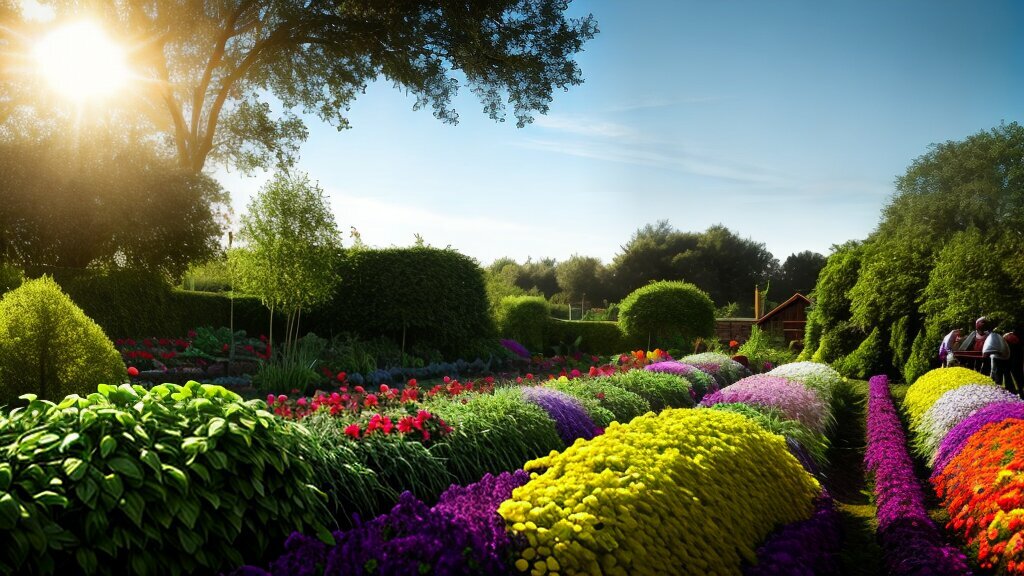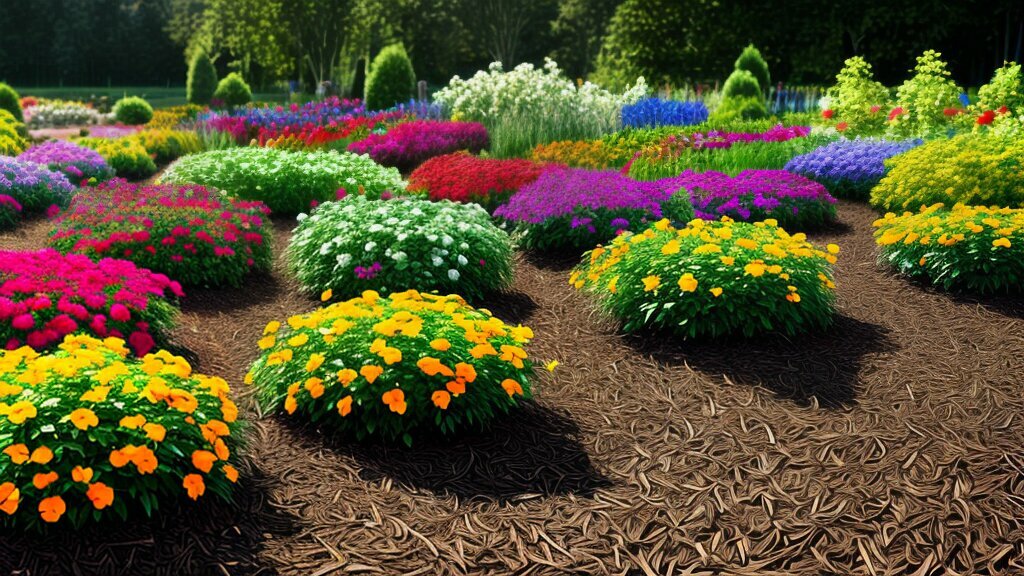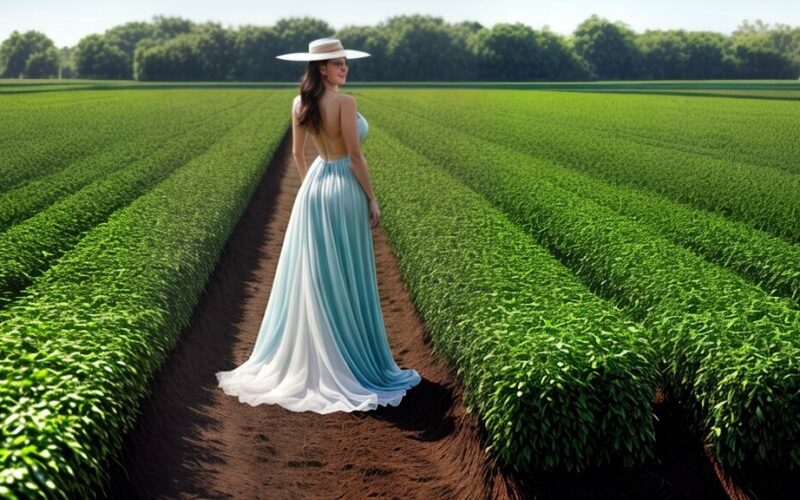Are you a gardener or farmer looking for ways to improve crop growth and yield? Have you heard about plastic mulch but not sure what it is or how it can help you? In this article, we will provide you with all the information you need to know about plastic mulch and its benefits.
Plastic mulch is a thin layer of plastic film that is placed on the soil surface to suppress weed growth, conserve moisture, and regulate soil temperature. It also helps to increase crop yield by improving soil health and reducing erosion.
Plastic mulch comes in different colors, thicknesses, and types, each with its unique benefits and uses. Some common types of plastic mulch include clear, black, silver, and colored.
In the following sections, we will explore the benefits of plastic mulch for gardening and agriculture, the different types available, the installation process, and the cost involved.
Key Takeaways:
- Plastic mulch is a thin layer of plastic film that is placed on the soil surface to suppress weed growth, conserve moisture, and regulate soil temperature.
- It helps to increase crop yield by improving soil health and reducing erosion.
- Plastic mulch comes in different colors, thicknesses, and types, each with its unique benefits and uses.
Benefits of Plastic Mulch for Gardening
If you’re looking to give your garden a boost, plastic mulch could be a game-changer in the way you approach gardening. As a gardener, you want to give your plants the best care possible, and plastic mulch can help you achieve that.
One of the advantages of using plastic mulch is that it helps retain moisture in the soil. This means that your plants will have access to water even during periods of drought. It also reduces the need for frequent watering, which saves time and effort on your part.
Another advantage of plastic mulch is that it suppresses weed growth. Weeds can be a major headache for gardeners, as they can compete with your plants for nutrients and water. With plastic mulch, you can drastically reduce the number of weeds in your garden, creating a cleaner and more efficient growing environment for your plants.
Plastic Mulch Advantages
- Retains moisture in the soil
- Reduces the need for frequent watering
- Suppresses weed growth
- Cuts down on the need for herbicides
- Increases soil temperature, stimulating plant growth
- Protects plants from soil-borne diseases
- Improves soil structure and fertility
As with any gardening technique, there are also disadvantages to using plastic mulch. One of the main drawbacks is that it can be harmful to the environment, as it is not biodegradable and can contribute to plastic pollution. Additionally, plastic mulch can be expensive, so it may not be a viable option for all gardeners.
Plastic Mulch Disadvantages
- Not biodegradable and can contribute to plastic pollution
- Can be expensive
- The plastic material can become brittle and break down, potentially harming plants and soil
- Difficult to maintain during windy conditions
Overall, plastic mulch can be a valuable tool for gardeners who are looking to increase efficiency and productivity in their gardens. Its benefits outweigh the disadvantages, but it is important to use it responsibly and consider other eco-friendly alternatives.

Types of Plastic Mulch and Their Uses
Plastic mulch comes in different types, each designed to cater to specific agricultural needs. The most common types of plastic mulch include:
| Type of Plastic Mulch | Color | Benefit |
|---|---|---|
| Clear Plastic Mulch | Transparent | Allows sunlight to penetrate, promoting early crop growth |
| Black Plastic Mulch | Black | Suppresses weed growth and retains soil moisture |
| White Plastic Mulch | White | Reflects sunlight, keeping the soil and crops cooler during hot weather |
| Biodegradable Plastic Mulch | Natural | Environmentally friendly, degrades into the soil after use, eliminating the need for removal |
Each of these is designed to serve a specific agricultural purpose. For example, clear plastic mulch is ideal for crops that require early sunlight to facilitate growth, while black plastic mulch retards weed growth and conserves soil moisture. White plastic mulch, on the other hand, regulates soil temperature by reflecting sunlight and is perfect for plants that require cooler soil temperatures. Biodegradable plastic mulch is an environment-friendly option that degrades into the soil and eliminates the need for removal, saving time and labor costs.
Understanding the different types of plastic mulch and their respective uses is crucial in choosing the right one for your agricultural needs.

When choosing plastic mulch, consider the crop, soil type, and weather conditions. It’s important to choose a mulch that not only helps the crop to grow but also suits the unique environmental conditions of your area. By choosing the right mulch for your agricultural needs, you can optimize crop growth and yield, making it a worthwhile investment.
Installation and Cost of Plastic Mulch
Installing plastic mulch in your garden is a straightforward process that requires a few key tools and materials. The first step is to prepare the soil by removing any weeds or rocks and leveling the surface.
Next, lay the plastic mulch sheets over the soil, making sure they are stretched tight and secured at the edges using soil or stakes. Cut holes into the plastic to allow for planting, and water the soil before planting to ensure moisture is locked in.
When it comes to cost, plastic mulch is an affordable and cost-effective option for gardeners and farmers alike. The price of plastic mulch sheets varies depending on the type and quality, but on average, you can expect to pay around $50 to $80 for a roll that is 4 feet wide and up to 400 feet long.
While the upfront cost of plastic mulch may be higher than traditional methods, the long-term benefits make it a worthwhile investment, saving you time and money in the long run.
As with any gardening technique, it’s important to weigh the pros and cons before deciding whether to use plastic mulch. Consider factors such as soil drainage, environmental impact, and plant health to make an informed decision.
Conclusion
Congratulations! You now have a comprehensive understanding of plastic mulch and how it can benefit your gardening and agricultural practices. By using plastic mulch, you can improve soil health, reduce water usage, and increase crop yields, all while saving time and money.
Remember to choose the right type of plastic mulch for your specific needs, taking into account factors such as color, thickness, and longevity. Also, keep in mind the installation process and costs involved, as these will vary depending on the size of your plot and the amount of mulch needed.
So go ahead, give plastic mulch a try and reap the rewards of a healthier, more productive garden or farm. Your plants and your wallet will thank you for it!





